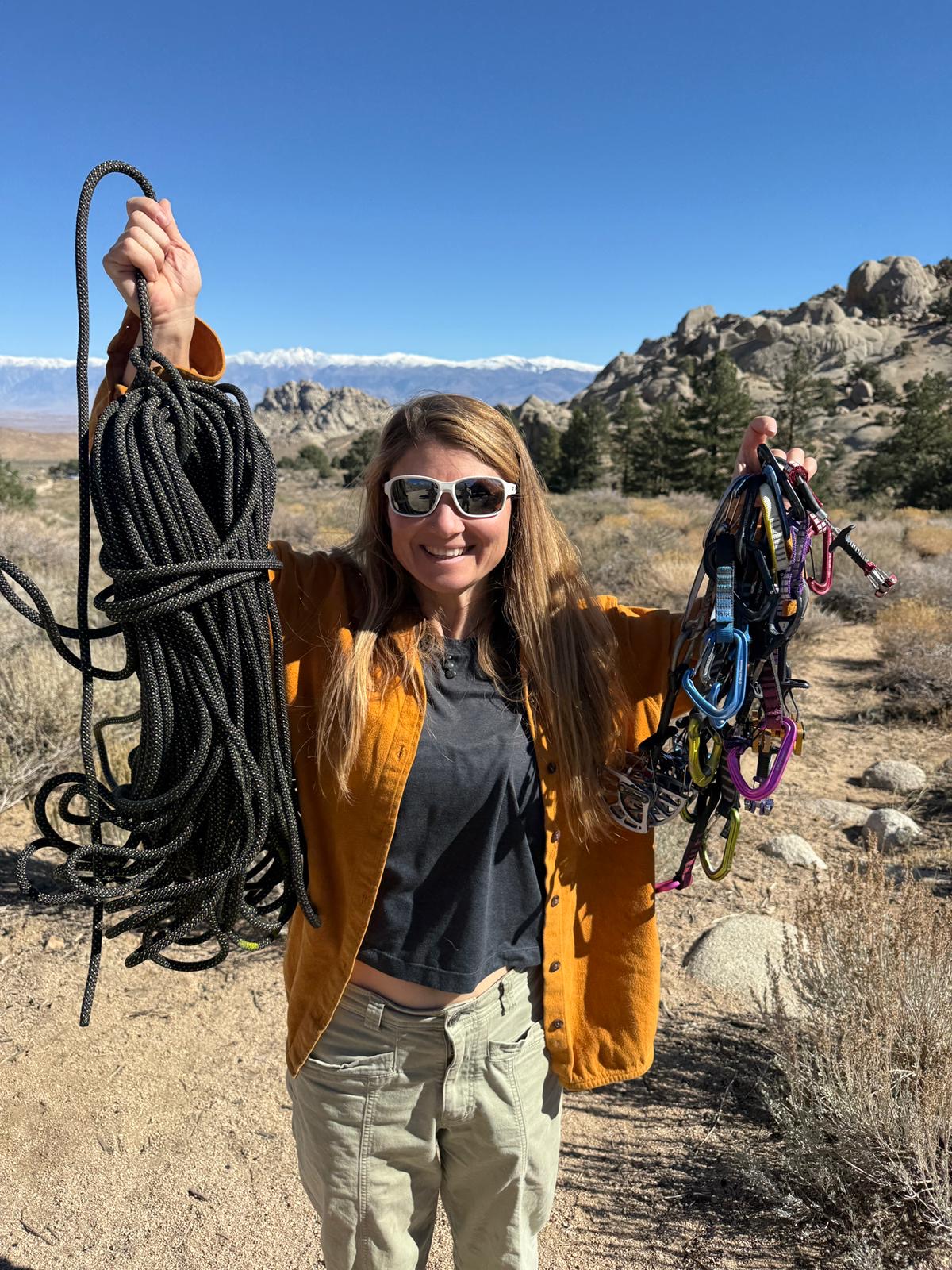Mindfulness and meditation can positively impact our well-being, but can also improve our climbing performance in more ways than one. In this article, we'll explore how meditation and mindfulness might improve our climbing and how you could benefit from having a mindfulness practice.
What is mindfulness and meditation?
Mindfulness can be hard to define but the most used definition is: ‘to pay attention to your present experience without judgement’. We can be mindful at any moment, you can be mindful when climbing, when driving, even when you're angry. The opposite of mindfulness is distraction and we are most distracted when we are lost in thought.
We can train our ability to be mindful through meditation. Meditation is a more formal practice that we set aside time for, often sitting down, perhaps using an audio track or a guide. Headspace, a meditation and mindfulness app, describes meditation as “...training in awareness and getting a healthy sense of perspective. You’re not trying to turn off your thoughts or feelings. You’re learning to observe them without judgement. And eventually, you may start to better understand them as well”. Meditation has been practised for thousands of years in many religious traditions, mainly buddhism. However, the benefits of meditation and mindfulness have been discovered by western psychology and now it is commonplace to use mindfulness and meditation to support our well-being or as a psychotherapeutic tool.
The science behind meditation and mindfulness
Meditation is powerful. One Harvard study found that meditation changed the structure of the brain. The eight-week study discovered that the people taking part in a Mindfulness-Based Stress Reduction (MBSR) programme increased cortical thickness in the hippocampus, a part of the brain that controls learning and memory, and regulates emotions. The study also showed a decrease in brain cell volume in the amygdala – an area of the brain responsible for fear, stress and anxiety. The reports matched how the participants felt, showing that meditation changes both human experiences and brain structure.
Research shows that when we are in a routine of meditating, changes in amygdala activation mean we can reap the emotional processing benefits of meditation even when we’re in a non-meditative state. Through regular practice, meditation can help us better adapt to stress, reduce anxiety and increase our attention all of which are significant when climbing.
Mindfulness and meditation in climbing
As climbers, meditation and mindfulness are practices that can make our minds stronger and sharper. It’s like fingerboarding for the mind – almost anything we do with our minds in climbing is made easier with the attentional control we get from meditation and mindfulness.
Practising meditation and mindfulness can help us to recognise when our mind wanders toward an unhelpful thought in the past or future, and come back to the present moment instead of identifying with that thought and reacting to it. This top-down processing, and the capacity to consciously shift our attention, is an excellent tool for fear management and performance, and meditation is a space to train it.
Our brains love to think, sometimes to our disadvantage. We might be out on a route and notice ourselves getting worked up in a situation as our minds think about what may or may not happen in the future. Through formally practising meditation off the rock, we can better access mindfulness tools in the moment, helping us to increase focus and bring our attention back to the climbing.
Meditation and mindfulness also increases self-awareness, not only of arising thoughts but of what is happening in our bodies too. If we are more aware of sensory data, the feedback from our fingertips and toes, and the sensations and emotions in the body, such as fear or response to stress, we are more able to respond accordingly and adapt our climbing to this information.
One ‘mind tool’ we can use to bring us into the present moment is to tune into sensory feedback. We can zoom into anything that exists only at this moment, such as breath, smell, sound, visuals, noises, and sensations. For example, we can think about the shape of the holds and how they feel, the sound of the birds, or the smell of the chalk. These are things that exist in the here and now and therefore help us anchor our attention in the present moment.
Strong Mind’s multipurpose mind tools
At Strong Mind, we know that the practice of meditation and mindfulness tools are invaluable for fear management and performance. In the Strong Mind course, we have developed multipurpose mind tools that climbers can use to help them remain present, reset after a bad day, notice unhelpful thoughts, relax or energise the body, and train attentional control. All of the tools in the course are based on mindfulness, acceptance commitment therapy, CBT, and other evidence-based interventions.
Using the mind tools regularly can help train our minds to enhance focus, reduce anxiety in a fearful situation, and give us the confidence to reach for the next hold. While they might not bring us back from a panic attack, they might stop us from getting there in the first place.










